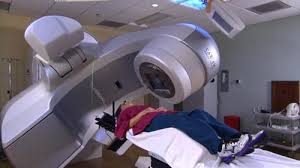Cancer is such an enemy where many of us have been effected at some point of time, either personally or through a loved one. The main obstacle till now lies in its early detection in order to prevent further spread in the body. Applying Big Data Analytics to human DNA and the DNA of cancer cells may prove to be a promising frontier in case of cancer treatment and research. It will enable cancer patients get the best cancer treatment for the type of cancer they have, minimize the negative impact of that treatment on them, and ultimately save lives.

Techniques used in Cancer Treatment
IBM’s Watson is programmed with specific details of how a particular medicine may react on a person. Watson’s analytics engine will thus prove to be useful in cancer treatment as it would suggest anything which it thinks might interact beneficially with the cell affected by mutation which is causing the cancer. Though doctor’s intervention will be a must as of now, but Big Data Analytics would at least speed up the process of cancer treatment. ‘Molecular Profiling’, is testing that looks at each person’s cancer tumor and studies the genetic characteristics as well as any unique biomarkers. It will be a boost for the development of new therapies in cancer treatment.
Using Big Data Analytics and Machine Learning in Cancer Treatment
Olivier Elemento, Physiology and Biophysics at Weill Cornell Medicine utilizes Big Data Analytics and Machine Learning in Cancer Treatment. His focus is to track important mutations in the cancer genome, understand its change overtime and develop new, potential cancer drugs. Not all mutations that occur are of significance. This is where Big Data Analytics and Machine Learning comes to play. The researchers perform assays that measure the effect of mutations in the genome. These further create humongous amount of data which then get added to the DNA sequencing data. The database consisting of clinical mutations is of immense use to the clinician. The more varied and critical mutations, the stronger the database will be. So, the goal is to identify a biological lymphoma signature. Once, the combined characteristics are traced, the information can be leveraged to build a model to predict patient relapse likelihood.
For different types of cancers, the early diagnosis would enable quick and personalized treatments. With the help of Big Data analytics, scientists can model varied textures that can reveal changes over milliseconds. Today, if a lump is found, patient first gets a mammogram, then a biopsy which takes two weeks or may be a month. But if cancer can be predicted early, then around two to three crucial weeks may be saved and enable quick, personalized treatments.
Thus, cancer treatment and research is a key segment which can be utilized by Big Data and Artificial Intelligence. This, combined with genetic analysis allows researchers to search for and find patterns among patients with rare diseases. Intel’s recent Collaborative Cancer Cloud project is making it easier for cancer researchers to collaborate with each other, share data sets and get to real treatments and maybe a cure for cancer sooner.